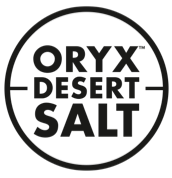Kidney Health & Salt: what's the connection?

Are you holding onto water?
If you’re experiencing water retention – swollen lower legs, ankles and feet and hands – conventional medical advice says you are likely consuming too much salt, which the body compensates for by retaining water in order to dilute sodium levels in your system. However, did you know that the opposite may be true; that you are not consuming enough salt?
Do I need More Salt In My Diet?
To explain, we need to start with your kidneys. They’re hard workers, filtering all of your blood, at a rate of approximately 180 litres a day. Considering you have 7-8 litres of blood, this means your entire blood volume gets filtered about 20-25 times a day!
Your kidneys function to filter the blood of waste materials and excess water turning it into urine, and so excreting whatever the body doesn’t need. However, not only do the kidneys have the ability to release water, they are also able to conserve water, and they do so under certain conditions.
Aldosterone is a hormone produced by the adrenal glands when too little sodium is detected in the body. If sodium levels drop due to reduced dietary intake, aldosterone is released, prompting the kidneys to conserve sodium and water. This can result in increased extracellular fluid volumes as the body tries to maintain normal blood pressure and fluid balance.
Your Kidneys & Sodium
The kidneys require sodium to function well. Their ability to excrete waste products may diminish as they work harder to manage fluid balance without sufficient sodium. The kidneys may also have difficulty filtering blood properly when sodium is insufficient, which can exacerbate fluid retention issues.
When the body retains excess fluid, it increases the overall volume of blood circulating in the bloodstream, which puts pressure on blood vessels which in turn can result in elevated blood pressure levels.
We know this flies in the face of the entrenched belief that we should be reducing the amount of salt we consume to prevent hypertension. The truth is, too little salt intake can not only result in water retention and impaired kidney function, but also hypertension.
A further mechanism by which salt restriction can increase blood pressure is through the loss of potassium and magnesium. Here is a quote by Dr Ray Peat:
“One of the things that happens when there isn’t enough sodium in the diet is that more aldosterone is synthesized. Aldosterone causes less sodium to be lost in the urine and sweat, but it achieves that at the expense of the increased loss of potassium, magnesium, and probably calcium. The loss of potassium leads to vasoconstriction, which contributes to heart and kidney failure and high blood pressure. The loss of magnesium contributes to vasoconstriction, inflammation, and bone loss. Magnesium deficiency is extremely common, but a little extra salt in the diet makes it easier to retain the magnesium in our foods."
Read our short blog on how much daily sodium is optimal here
References:
- https://health.howstuffworks.com/human-body/systems/kidney-urinary/kidney5.htm
- https://www.thelancet.com/journals/lancet/article/PIIS0140-6736(18)31724-0/abstract
- https://socratic.org/questions/how-does-the-sodium-potassium-pump-work
- https://www.bitchute.com/video/ph2L51KIySpz/ The Myths and Misconceptions of Salt with Dr. Bryan Ardis
- https://www.ncbi.nlm.nih.gov/books/NBK537088/
- https://www.perplexity.ai/search/explain-sodium-potassium-pump-Z_KqAQQlQE6H1xvd7KecCA
Disclaimer: while many of our blogs featuring salt and health are carefully researched and reviewed by our qualified nutritionist and biostatician, Jacqui Niehaus, they should not be construed as medical advice. Please consider our blogs as education on how the human body processes and metabolises natural salt and its importance for our wellbeing.













